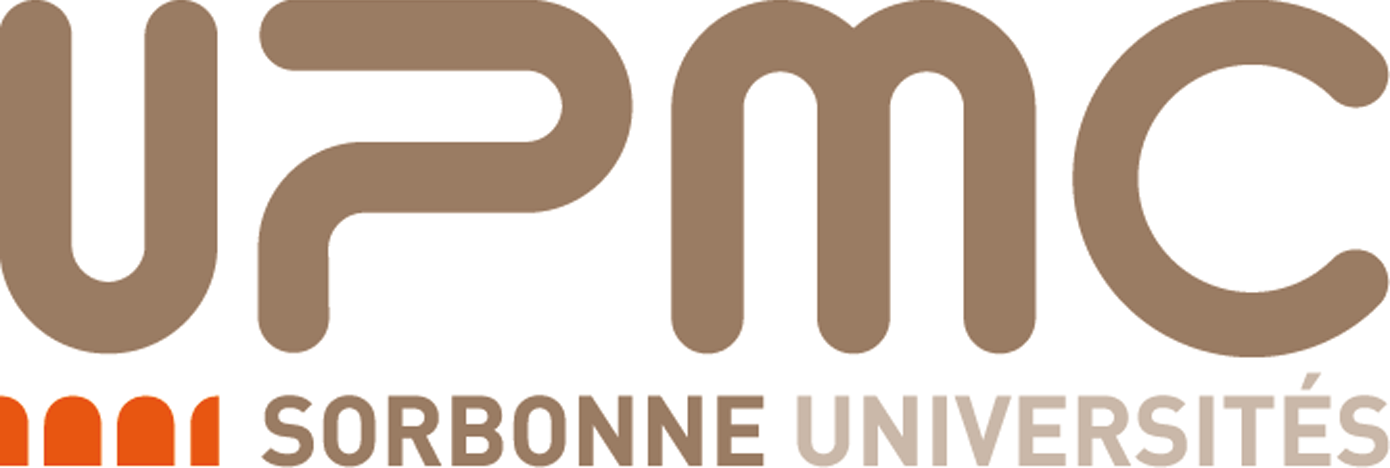| Text |
Edition:
UK
US
AU
Sign in
Beta
About us
Today's paper
Subscribe
This site uses cookies. By continuing to browse the site you are agreeing to our use of cookies. Find out more here
Hide
News
Sport
Comment
Culture
Business
Money
Life & style
Travel
Environment
Tech
TV
Video
Dating
Offers
Jobs
Professional
Guardian Sustainable Business
Hubs
Events
Awards
In focus
Jobs
Become a member
Directory
About us
Next
Previous
Blog home
Best Bits: Building the best social enterprise website
We round up our experts' advice on how to boost your social enterprise's website
Share
1
in
Share
0
Email
The 100 essential websites Photograph: © Images.com/Corbis
Gillon Quinn - Visual Revolution
Look for professional agencies. Social enterprise isn't all about group hugs, expect professional services from professional organisations. Just because an organisation has declared their social responsibilities, doesn't mean they can not compete with the public and private sectors. If you are unsure about the organisation and it's credentials, do some research - CIC regulator, local and national social enterprise networks... A true social enterprise won't hide or discourage this. If an organisation is open and keen to invite a client to engage beyond their cheque book, a relationship of trust is developed.
Bespoke is best. Anyone can offer to skin a word press site for you, but does it give you what you need? You know your audience, make sure you are delivering what they need.
Ian Hope - Director, Enterprise2work
Research your target audience. Carefully investigate and consider who your target audience should be and what their likely interests will encompass that are relevant to your own mission and product/service offering. Getting relevant targeted traffic to the website is absolutely vital and therefore the short and long-term effort/cost needed for SEO as well as any paid-for advertising should not be underestimated. However, the cost of making a website appropriately usable and functional can be dramatically reduced if the start point is an Open Source CMS/web publishing platform such as WordPress, Drupal or Joomla that provides pre-tested templates upon which customisation can be performed.
Website content. Create your website content to focus/demonstrate how your products/services/mission can satisfy your target audience needs. Some organisations want their websites to contain lots of graphics and animation while others prefer a "minimalistic" look & feel. Since the "pretty" parts of a website can involve additional costs, I guess what's important for social enterprises is to decide to what extent they can justify the additional cost/effort of making their sites visually stunning as opposed to sufficiently functional to support their mission objectives.
Abby Pond - Fat Beehive Ltd
Build relationships. With your web developer, within your organisation, using social media, with your clients and customers. Keep in mind that a relationship does not necessarily mean long term contracts.
Be specific. This goes for both requesting information from the agency and for the information you give the agency. You may not know the exact technical way something will be built, but you can outline exactly how you need it to work or would like it to work. The more detail you put into your specification (and get that specification signed off by your agency) the less room there is for confusion and miscommunication.
Have a plan. This goes for any type of development/creative work, but also for social media. What are you doing? Why are you doing it? Who is doing it? Do you have resources? How will you keep it on track? How will you measure ROI/SROI?. Always have a plan.
Ask questions. Ask around, and do so in a formal, specific manner. It's heart wrenching to hear the stories of how clients have been mislead by other agencies, even when they were recommended by friends/family. It is very important to ask agencies about how they work, where their employees are, and if all work is done internally. Ask for mutual expectations (again, be specific.) What are the expectations for you and the agency at the different milestones of the project? What are the consequences for each party should they fail to meet those expectations by that milestone? Lay that out before you begin. Always get references and ask specific questions about the areas that concern you.
Remember your users. Ultimately, your website is for them, not for you. Take the time to listen to your users. A website/web project is not static. It's like your business plan, needing constant refinement, examination and tweaking. It should be built with the future in mind, and your budget should include room for maintenance and changes (or work it into your support agreement)
Robin Dally - Founder and managing director, Ethical SEO Ltd
Be explicit about your values. It can be easier to build communities around social goals and promote a site which has ethical goals than a purely commercial one. Building relationships with others in the sector is much easier for social enterprises than for big commercial operations. Having online friends instead of competitors can help drive traffic to ones site. There are some potential customers who might be turned of by you being clear about who you are and why you do it, but this will turn into a strength. This is something that 'mainstream' business is really struggling with at the moment, as an social enterprise you are ahead of the game.
Test usability and SEO. In my experience the cost of making a website 'visually stunning' is tiny compared to the cost of testing the usability of the site and engaging in a long term campaign to make sure that the target audience are finding the site. Unfortunately, these two vital components for 'the best enterprise website', are the ones which budgets are often not available for. Getting the content strategy right from the off helps ensure that visitor journeys actually work, that the users of the site can actually find what they are looking for.
Be successful with search. Search is still one of the main tools that people use to find a website. There is a lot of mis-information out there about how to be successful with search. Offline qualitative research can be very useful for a new business to decide who they want to attract. To find the audience you need to carry out some testing. Twitter can tell you who is interested in what you do. Google keyword tool can tell you the words the people use to search what you do. Once a website is up and running, playing very careful attention to the websites analytics will show where people have come from, how they arrived, what they were looking for and how much they engaged with the site. Finally, build relationships with other websites that those same people might visit.
Kate Doodson - business development & operations, Cosmic
After-development support. The key is to ensure that client and developer can work well together. Find out if the web development company has a strategy for after-development support, so that the client doesn't get dropped after they have spent their money!
Tools to drive traffic. For increasing traffic to a site, I would suggest first to compare competition vs search terms, how many people are searching for that phrase. To do this, type the phrase into Google, the return result will tell you how many competitive pages exist for that phrase. Then type the same phrase into SKTools (now all part of AdWords) to get rough number of people searching for that phrase. That will help you to see if the phrases you are interested in competing with are suitable for you business. I would also suggest to look at the number of back links- links from other sites, to see who currently links to you. You can use it for checking out other peoples websites too and seeing where their links come from! Then get yourself linked on those websites too. One tool for this is www.backlinkwatch.com.
Think about your users - plan for their journeys. Imagine two or three typical users paths, what pages they would click on and when in their journey through the website. This helps to think about appropriate content and suitable engagement tools for users. It also helps to recognise which content users aren't interested in.
MJ Ray - Worker-owner, software.coop
Directories. There are some web agency directories, but honestly, I think most of them stink and are little more than ways for directory publishers to make money. Some advice sites and directories have been funded by gov.uk and/or support bodies and even some of those gave out what I'd call bad advice, sadly.
Expect to develop the site. Unless it's very very simple, expect to develop the site, rather than deliver it all perfectly at the first iteration; as Robin Dally said "look towards building a long term relationship with them". My heart sinks when I receive a invitation to tender for an small project to be done with an inflexible structure or tools for a fixed price for a fixed termination date that gives no time for to develop the site with its users. It is also very important to keep the goals of your website and your social enterprise in mind throughout all aspects of the process.
Use open source software. Use good, vibrant free and Open Source Software as much as reasonably possible. Any tools that makes you depend on a monopoly provider are a social problem (a choke-hold) as well as a practical one (a single point of failure).
Nandini Das - Marketing and Web Officer, The Social Investment Business
Structured references are absolutely key to choosing the right agency/designer to work with - but more importantly ask very specific questions of the referees. Like how satisfied were they with the designer's ability to interpret the brief? Or how satisfied were they with the way their feedback was incorporated? It might not seem like much but this is usually where things start to go horribly wrong.
Your best friends: your designer and developer. They aren't just your friends when you're building or developing the site, they are a crucial part ensuring that you can evolve quickly and consistently.
Analyse every day. Who is visiting? What content are they most interested in? Are your digital campaigns working? Should you invest in more expensive keywords? Are your customers on their PCs or mobiles? Know your users, they will tell you what to do with your website. Just ask. Plug yourself into online communities. Ensure that your website reinforces your business objectives. It's best not to have content for content's sake
This content is brought to you by Guardian Professional. To join the social enterprise network, click here
Posted by
Gines Haro Pastor
Wednesday 26 October 2011 15.02 BST
Guardian Professional
Jump to comments (0)
Join Guardian Sustainable Business
Become a member, it's fast and it's FREE
Sustainable business shorts
A series of half-day courses for sustainability professionals on communications, collaboration and engagement
Sustainability case studies
Case studies from the most innovative and impactful entries to the Guardian Sustainable Business Awards
Next
Previous
Blog home
Share
in
Share
Email
Sustainability hubs
Children's rights and business
Circular economy
Communication
Co-operatives and mutuals
Finance
Food
International
Rethinking prosperityNEW
Social enterprise
Social impact
Supply chain
Sustainable design
Sustainable fashion
Sustainable living
Technology and innovation
The role of business in development
Values-led business
Water
Guardian Small Business Showcase
Recognising SME talent and innovation across seven categories. Showcase your company's success for a chance to win. Find out more and enter
Sustainable business courses
Practical half-day courses from the Guardian on sustainability communications, brand, collaboration and leadership. Book now.
Find the latest jobs in your sector:
Arts & heritage
Charities
Education
Environment
Government
Graduate
Health
Marketing & PR
Media
Sales
Senior executive
Social care
Browse all jobs
About Guardian Professional
Guardian Professional Networks are community-focused sites, where we bring together advice, best practice and insight from a wide range of professional communities.
Some of our specialist hubs within these sites are supported by funding from external companies and organisations. All editorial content is independent of any sponsorship, unless otherwise clearly stated. We make Partner Zones available for sponsors' own content. Guardian Professional is a division of Guardian News & Media
More from Q&A
Latest:
17 Sep 2014: How far can we go with the idea of a circular economy? - live chat
Next:
31 Oct 2011: Live discussion: ethical trading
Previous:
20 Oct 2011: Live discussion: how can green marketing mainstream sustainability?
Q&A index
License/buy our content | Privacy policy | Terms & conditions | Advertising guide | Accessibility | A-Z index | Inside the Guardian blog | About us | Work for us | Join our dating site today
© 2014 Guardian News and Media Limited or its affiliated companies. All rights reserved.
1
Share
0
in
Share

|







